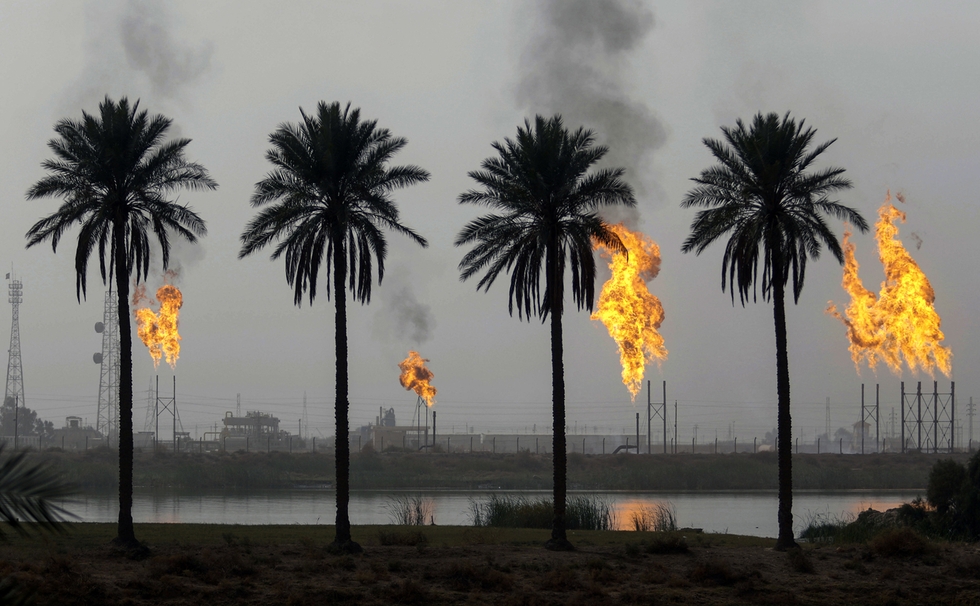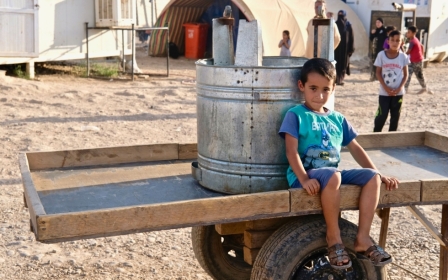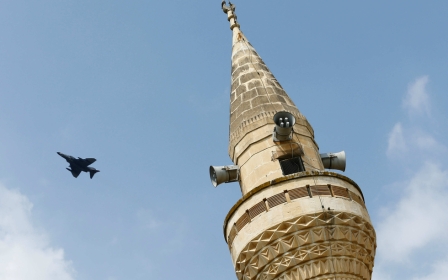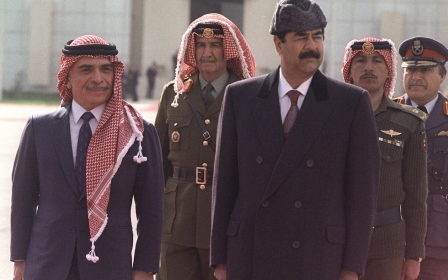Iraq's parliament approves $112bn budget after months of wrangling

Iraq's parliament approved the 2019 budget after an hours-long vote early on Thursday, ending weeks of deadlock over allocations to different provinces and privatisation of state projects.
At $111.8bn, it is one of the oil-rich country's largest-ever spending bills, representing a nearly 45 percent increase from last year and awarding even more money for public salaries, including those of the northern Kurdish region.
The draft bill was originally submitted to parliament in October but has been fiercely debated since then.
MPs from provinces ravaged by the fight against the Islamic State (IS) group had criticised it for not allocating enough reconstruction funds to their regions.
Another debate raged over the share that would be allotted to the administratively autonomous Kurdish region.
The budget projected oil exports of 3.88 million barrels per day (bpd), up from 3.8 million bpd for the previous year, at a price of $56 per barrel, an increase from the $46 the 2018 budget was based on.
The new budget includes payment of salaries for the Peshmerga, the military force for the semi-autonomous Kurdish region, a move that politicians said might help ease tension between Baghdad and Erbil, the capital of the Kurdistan region.
The 3.88 million bpd of oil exports include 250,000 from the Kurdish region. Exports from northern Kirkuk resumed after a yearlong halt in November.
Iraq's oil exports from its southern Basra fields account for more than 95 percent of the OPEC producer's state revenue.
'We are satisfied with the budget'
Kurdish politicians welcomed the move to pay the salaries of their forces, even though these are not under the direct command of the Baghdad government.
"We are satisfied with the budget after approving the salaries for Peshmerga and the region's civil servants," Kurdish MP Aram Balati told Reuters news agency.
Last year, the budget cut the semi-autonomous Kurdistan Regional Government’s (KRG) share from the 17 percent the region has traditionally received since the fall of Saddam Hussein, following a failed bid at full Kurdish independence from Baghdad in October 2017.
Politicians from southern predominantly Shia Muslim provinces had bickered over budget allocations.
The country’s parliament did not vote as planned on three cabinet posts that remain empty, however, leaving Iraq with an incomplete government months after a general election.
The vote had been delayed partly by a face-off between two Shia-dominated political groupings who still cannot agree on the remaining cabinet appointments.
Seventeen ministerial posts have been filled in Prime Minister Adel Abdel Mahdi's 22-ministry cabinet so far, after parliament approved 14 nominations in late October.
Politician Mohammed Tamim said the budget's approval would "help stabilise Iraq's economy and pave the way for the country's rebuilding".
Iraq's infrastructure has been wrecked after years of war against IS and alleged corruption that has left thousands of people without power and water, especially in the southern city of Basra.
According to a Middle East Eye report from last October, activists said as many as 100,000 people in Basra have been hospitalised as a result of water-related illnesses, while thousands have protested in the streets over a lack of drinkable water.
New MEE newsletter: Jerusalem Dispatch
Sign up to get the latest insights and analysis on Israel-Palestine, alongside Turkey Unpacked and other MEE newsletters
Middle East Eye delivers independent and unrivalled coverage and analysis of the Middle East, North Africa and beyond. To learn more about republishing this content and the associated fees, please fill out this form. More about MEE can be found here.




